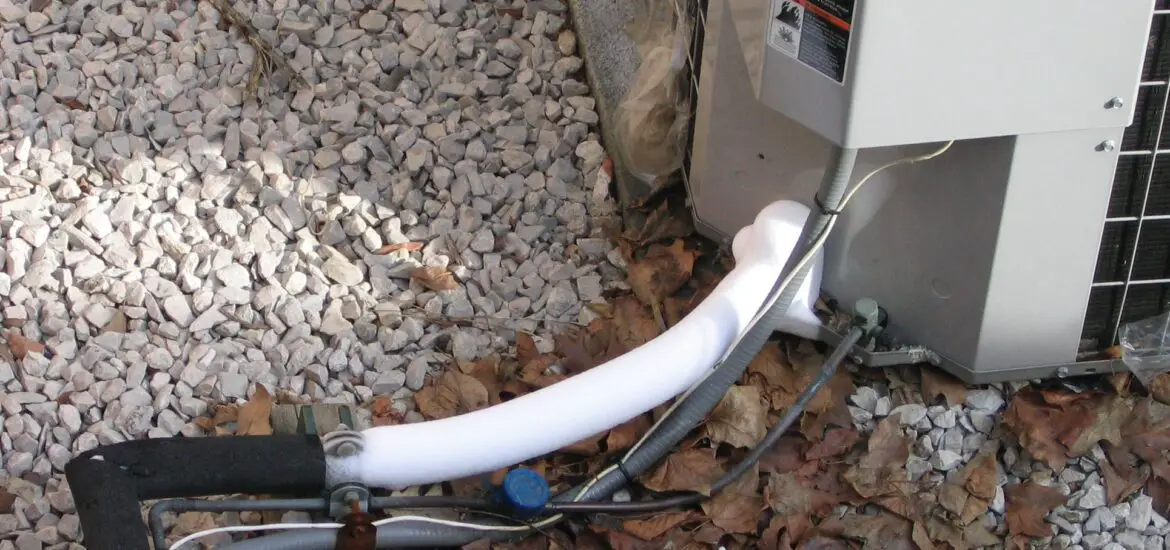Do freon leaks smell? Let’s explore this query with the attention to detail it demands, to ensure that you’re equipped to identify and respond to potential leaks in your system.

Table of Contents
Do Freon Leaks Smell?
Do freon leaks smell? It’s a common concern among homeowners and building managers. Understanding this is essential, as it can impact the safety and efficiency of your HVAC system. To answer this question:
Freon, the common name for a group of refrigerants used in air conditioning systems, is odorless in its pure form. This means that a Freon leak in your HVAC system typically doesn’t emit a strong or distinct smell that can be easily detected by your sense of smell. However, it’s not entirely true that Freon leaks have no odor-related aspects.
In certain situations, the lubricating oils that mix with Freon may carry a faint chemical odor, which some individuals with particularly sensitive noses might notice. However, this odor is usually very subtle and not a reliable indicator of a leak. In fact, many people won’t be able to detect any smell at all, even when a Freon leak is present.
It’s crucial to understand that the absence of a noticeable smell doesn’t mean a leak is not happening. Freon leaks may go unnoticed without proper detection methods. This can lead to various problems:
Reduced Efficiency: A Freon leak can lead to your HVAC system working less efficiently, resulting in higher energy bills and uneven cooling or heating. It’s not just about the smell; it’s about the impact on your comfort and budget.
Health Risks: Prolonged exposure to Freon can lead to health issues, such as headaches, dizziness, eye, throat, or skin irritation. Even though it might not smell bad, it can be harmful if not addressed.
Environmental Impact: Freon is harmful to the environment, and leaks contribute to ozone layer depletion. So, beyond the odor, there are broader consequences to consider.
Therefore, relying on smell to detect Freon leaks is not recommended. Instead, regular maintenance and professional inspections are essential for the early detection and addressing of any Freon leaks. Don’t wait for a bad smell to alert you to potential issues; take proactive steps to ensure the proper functioning of your HVAC system.
Identifying Freon Leaks in Your HVAC System
Now that we’ve established that relying on smell isn’t a reliable method to detect Freon leaks, let’s explore how professionals go about identifying these leaks:
Electronic Leak Detectors
These devices are highly sensitive and accurate. They can detect even small amounts of refrigerant gas. HVAC technicians use electronic leak detectors to pinpoint the location of the leak. This method ensures precise and efficient leak detection, ensuring you don’t have to rely on your sense of smell.
A good example of an electronic leak detector is the CPS Products LS790B Electronic Refrigerant Leak Detector available at Walmart.
UV Dye Test
In this test, a special dye is added to the refrigerant system. When the system is running, the dye circulates with the refrigerant. If there’s a leak, the dye will escape with the refrigerant.
When the system is inspected under UV light, the dye reveals the location of the leak as a glowing, fluorescent spot. It’s a visual and reliable method to locate leaks without relying on odor.
Soap Bubble Test
In this simple but effective method, soapy water is applied to areas where a leak is suspected. If there’s a leak, the escaping gas causes bubbles to form.
The location of the leak is where the bubbles appear. This method is accessible and provides a clear visual indication of leaks.
If you suspect a Freon leak in your HVAC system, it’s advisable to contact a certified HVAC professional to conduct these tests safely and accurately. They have the equipment and expertise to detect and address the issue properly, without solely relying on your sense of smell.
Health Risks and Safety Concerns of Freon Leaks
Exposure to Freon due to a leak, especially in a poorly ventilated area, can pose health risks. It’s important to understand the potential dangers associated with Freon leaks:
Symptoms of Exposure: Freon exposure can lead to symptoms such as headaches, dizziness, irritation of the eyes, throat, or skin, and in extreme cases, respiratory issues. If you experience any of these symptoms and suspect a Freon leak, immediately ventilate the area and seek professional assistance. It’s not just about the odor; it’s about your health and safety.
Asphyxiation Risk: While Freon itself is not flammable or explosive, its presence in large quantities, when displacing the oxygen in a room, can lead to asphyxiation. Always ensure that your HVAC system’s maintenance is up-to-date to prevent such dangerous situations. Safety goes beyond what you can smell.
Steps to Take If You Suspect a Freon Leak
If you suspect a Freon leak in your HVAC system, here are the steps you should take:
Turn Off the System: To prevent further leakage and any potential health risks, turn off your HVAC system immediately. It’s an immediate action to protect yourself and your property.
Ventilate the Area: Open windows and doors to disperse any accumulated refrigerant gas and ensure proper ventilation. It’s about creating a safe environment to breathe in.
Contact a Licensed HVAC Technician: Only a certified HVAC technician should inspect and repair the leak. Handling refrigerants requires specialized knowledge and equipment, and attempting to repair the leak yourself is not safe or recommended. It’s crucial to involve an expert for proper resolution.